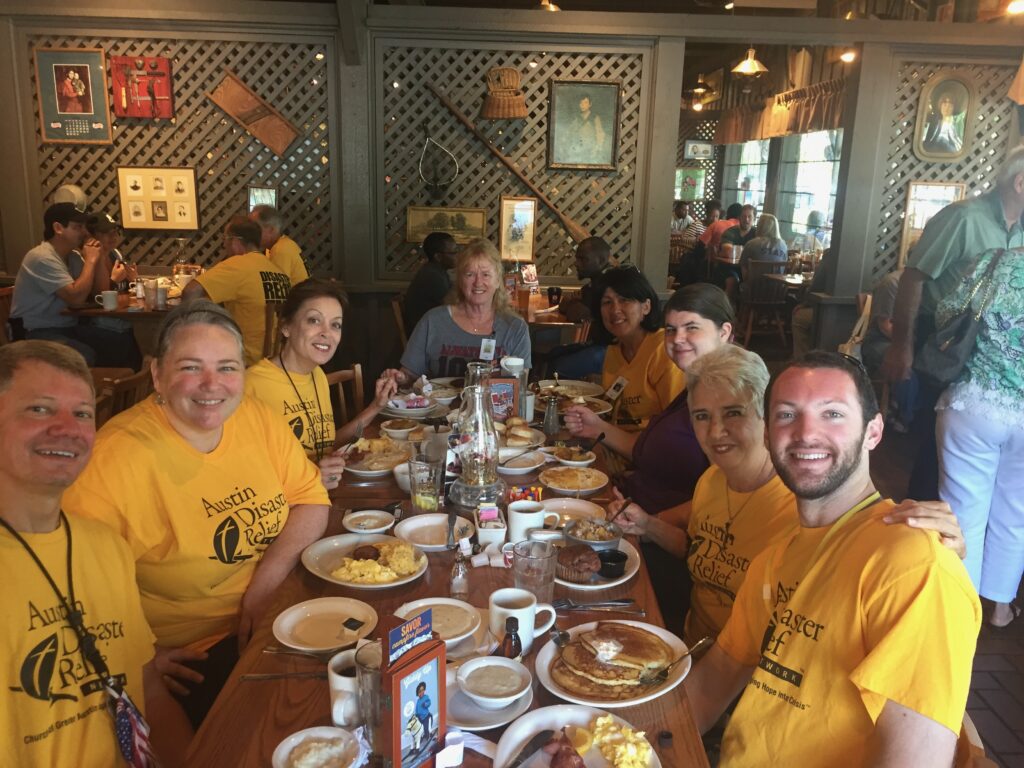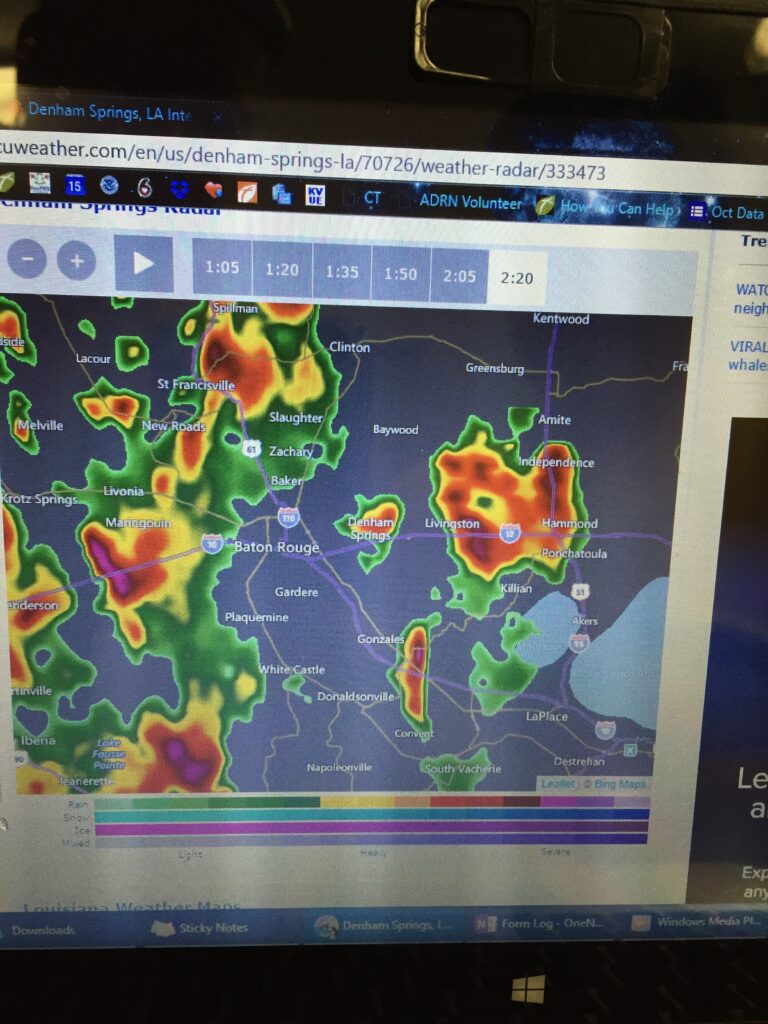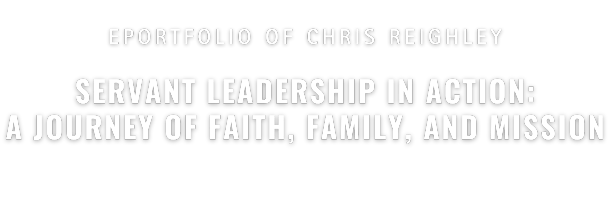— reflection on teamwork
Building Hope Together:
The Transformative Power of Teamwork in Disaster Relief
What if I told you that great teamwork could stop the rain?
That may sound impossible, but in the heat of Denham Springs, Louisiana, while responding to the Great 2016 Louisiana Flood, our team witnessed what can happen when people come together with a shared mission, faith, and trust in one another. During that chaotic and life-altering disaster relief operation, our team didn’t just survive the overwhelming heartbreak and devastation—we thrived. We provided emotional and spiritual care to thousands of families. We were united, built on the foundations of servant leadership and empathy, and through it all, we achieved the seemingly impossible. In contrast, an experience working as a cook at an RV resort revealed the consequences of poor leadership and fractured teamwork—showing that without trust, even the most skilled individuals can fail.
These two experiences taught me that teamwork is not just about logistics and strategies. True teamwork is about heart, empathy, and purpose. It’s about the power of unity, where each team member is driven by something bigger than themselves. Together, we can accomplish far more than we ever could alone.
The Humanity Behind the Mission: Working Together in Denham Springs

I remember walking through the streets of Denham Springs, where floodwaters had turned homes into ruins and lives upside down. As our Critical Incident Stress Management (CISM) teams began offering support—a specialized approach that provides emotional and spiritual care to those affected by traumatic events—we realized that no amount of preparation could have fully prepared us for the human element: the grief, the trauma, the loss.
But it wasn’t just our training that carried us through; it was our teamwork—our unspoken trust in each other. Bill, Katherine, Michael, and others—these weren’t just colleagues; they were my brothers and sisters. We leaned on each other, prayed together, and forged ahead with one goal in mind: helping the people who had lost everything.
By contrast, my experience leading the food service team at the RV resort was a lesson in what happens when teamwork falls apart. There, the leadership was toxic, and communication was broken. Despite my efforts, the team fractured under the weight of poor leadership, teaching me that even the most skilled individuals can’t succeed without a foundation of trust and unity.
Our Task: Building a Mission-Driven Team
Our task in Denham Springs was not just about logistics—it was about building hope. We were spread across miles of devastation, but we were united by our mission to provide emotional and spiritual care. Our leadership team didn’t just give orders; we created an environment where every volunteer could thrive. Our strength as a team wasn’t in our individual skills—it was in how we supported and uplifted one another. Together, we made sure that every person in need was cared for.

Unfortunately, at the RV resort, the absence of such unity became clear. Without proper leadership or trust, even the best-intentioned efforts failed. The general manager’s lack of empathy and communication broke the team apart, showing me that no team can succeed if its members don’t feel connected to one another.
Moments of Transformation: The Power of Unity in Action

I will never forget one day in Denham Springs. A sudden rainstorm hit, scattering our teams across miles of flooded streets. In the rush to get everyone to safety, I realized we had forgotten to do something vital—pray. That evening, we gathered together, prayed, and from that point on, we never made another decision without it. Remarkably, it never rained on our teams again. It was a turning point. It wasn’t just about logistics anymore—it was about faith, trust, and unity. We were no longer just a team; we were a family, bound by something deeper than the work we were doing (Greenleaf, 2002, p. 47).
Meanwhile, at the RV resort, despite my efforts to salvage some form of teamwork, the toxic leadership above us destroyed any chance of cohesion. The experience underscored that teamwork cannot flourish without genuine care, trust, and shared purpose.

The Impact of Teamwork: Results That Transcend the Task
In Denham Springs, our teamwork didn’t just accomplish tasks—it changed lives. Over four weeks, we knocked on nearly 3,000 doors, bringing emotional and spiritual care to families who desperately needed it. The Standard Operating Procedures (SOPs) we developed became a model for future ADRN operations, but more importantly, we left knowing that our work mattered—it brought hope to people in their darkest moments. We didn’t just complete a mission; we built something lasting—trust, connection, and hope. (Northouse, 2018, p. 325).
By contrast, the RV resort was a harsh reminder of what happens when leadership goes wrong. The operation never reached its full potential, largely due to the toxic leadership of the General Manager. His narcissistic behavior created a culture of mistrust and isolation. Decisions were made without regard for the well-being of the team, and communication broke down quickly. Without empathy, unity, or a shared mission, the team fractured under the weight of poor leadership. This experience taught me that no matter how skilled the individuals are, a team cannot succeed without a foundation of empathy, trust, and effective leadership.
Takeaways: Building Teams That Thrive on Heart and Purpose
Unity of Purpose
Teamwork thrives when there is a shared mission that resonates deeply. In Denham Springs, our unity came from knowing we were there to serve others in their most vulnerable moments. Moving forward, I will ensure that every team I lead is grounded in a mission that brings people together with purpose (Greenleaf, 2002, p. 72).
Servant Leadership
Servant leadership was the backbone of our success. Leading with empathy, prioritizing the needs of others, and building trust was key to our effectiveness as a team. I will continue to lead by serving, knowing that this empowers teams to achieve more than they ever thought possible (Northouse, 2018, p. 345).
Trust and Communication
Trust was our lifeline in Denham Springs. Open, honest communication made sure everyone knew their role and felt supported. Moving forward, I will prioritize creating environments of trust and transparency, ensuring that every team member feels valued and heard (McIntosh & Rima, 2007, p. 124).
Adaptability
Our ability to adapt was crucial to our success. Disaster situations demand flexibility and quick thinking. Moving forward, I will ensure that every team I lead can adapt to challenges as they arise, confident that unity and trust will guide us (McIntosh & Rima, 2007, p. 95).
Conclusion: The Emotional Power of True Teamwork
In both Denham Springs and the RV resort, I witnessed the full spectrum of teamwork—its strength when built on trust and unity, and its fragility when those foundations are missing. In Denham Springs, our team didn’t just execute tasks; we became a lifeline for families who had lost everything. We were bound by more than just roles or responsibilities; we were driven by a shared mission of hope. That unity gave us the strength to face adversity together, turning chaos into moments of profound transformation.
At the RV resort, I saw the opposite. Without trust, without purpose, the team unraveled. It was a stark reminder that the best teams aren’t just groups of people working together—they are communities connected by a deeper understanding of why they do what they do.
As I move forward, I will carry these lessons with me, knowing that the true power of teamwork lies not just in what we achieve but in how we achieve it—together. I will build teams that thrive on trust, empathy, and unity, because when a team works with heart and purpose, they are unstoppable.
In the words of Helen Keller, “Alone we can do so little; together we can do so much.” Just like in Denham Springs, it’s the coming together of hearts, minds, and hands that creates lasting impact. We were stronger because we were united, and in that unity, we found the power to change lives.
Imagine a team like that—a team built on faith, purpose, and love. The challenges ahead may be great, but so is the potential when people come together, driven by a mission larger than themselves. That’s the legacy of teamwork I want to leave behind: one of trust, empathy, and shared purpose, where every challenge becomes an opportunity to rise together, stronger than we ever were alone.
References
Greenleaf, R. K. (2002). Servant leadership: A journey into the nature of legitimate power and greatness (25th anniversary ed.). Paulist Press.
McIntosh, G. L., & Rima, S. D. (2007). Overcoming the dark side of leadership: How to become an effective leader by confronting potential failures (Rev. ed.). Baker Books.Northouse, P. G. (2018). Leadership: Theory and practice (9th ed.). Sage Publications

